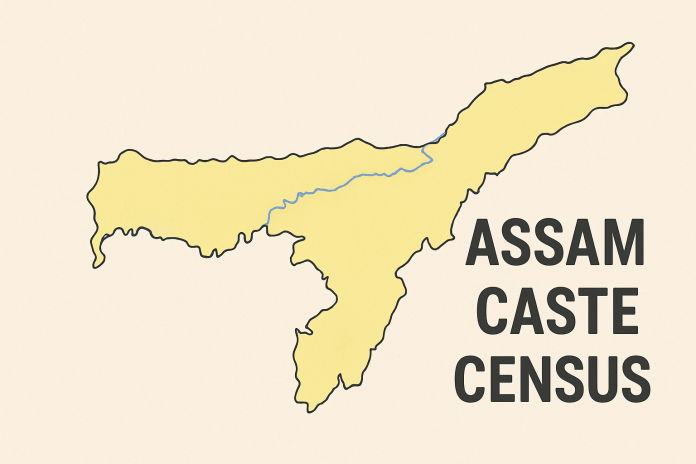New Delhi – The seven indigenous Muslim communities of Assam are eagerly anticipating the nationwide caste census following the Centre’s recent approval, hoping it will finally offer them recognition and distinction from the Bengali-speaking Muslim population, often labelled as outsiders.
Despite repeated promises, the Assam government has yet to conduct a state-level caste census. This delay has left groups such as the Goria, Moria, Deshi, Syed, Jolha (Julaha) of Brahmaputra Valley, and Kiren and Maimal Muslims of Barak Valley, increasingly anxious about losing their cultural and ethnic identity. The BJP-led state government had recognized these seven groups as “indigenous” in July 2022, yet substantial progress on enumeration has stalled.
In contrast, Bengali-speaking Muslims—commonly referred to as Miya—face increasing discrimination and hostility. Branded as illegal immigrants from Bangladesh, they have become the target of hate speeches, eviction drives, and exclusionary policies under the BJP government. This rhetoric, deeply rooted in Assam’s political landscape, has intensified under Chief Minister Himanta Biswa Sarma, known for his repeated anti-Muslim remarks since taking office in 2021.
Moinul Islam, president of the Sadou Asom Goria Jatiya Parishad, urged the central government to expedite the caste census, emphasizing the necessity of distinguishing indigenous Assamese Muslims from those of migrant origin. “Our language, culture, and history are different. A proper census is the first step toward preserving our identity,” said Islam, highlighting concerns that some Bengali-speaking Muslims are falsely claiming Goria identity by adopting Assamese language and marital integration.
According to Islam, the Goria population is estimated between 10 to 11 lakh. However, he fears the lack of properly trained census enumerators could blur distinctions and allow non-indigenous individuals to be misidentified.
These indigenous groups trace their roots to conversions and historical events dating back to the 13th century Mughal-Ahom battles. However, the demographic growth of Bengali-speaking Muslims post-Partition has posed a cultural and political challenge for them.
Rajib Choudhury, publicity secretary of the Parishad, demanded that post-census, indigenous Muslims be granted Other Backward Classes (OBC) status to ensure access to reservations in education, employment, and politics, similar to other indigenous Assamese communities.
CM Sarma had earlier announced plans for a caste census following consultations with Muslim intellectuals. He noted that these communities have preserved distinct dialects and traditions integral to Assam’s heritage, setting them apart from migrant-origin Muslims.
Indigenous Assamese Muslims are believed to constitute about 37% of the state’s Muslim population, while Bengali-speaking Muslims make up the remaining 63%. A caste-based enumeration is expected to provide a platform for indigenous groups to assert their identity and secure constitutional safeguards.
Meanwhile, the Bengali-speaking Miya Muslims continue to face state-led evictions and hostility. Recently, 151 families were evicted from Kamrup district’s tribal block area. Clashes during the eviction led to two deaths. Similar operations in Goalpara’s reserve forest uprooted around 450 families.
As Assam gears up for the 2026 state elections, the Sarma government has intensified its targeting of Bengali Muslims. Analysts predict a surge in religious polarization. Sarma even issued a warning that Bengali Muslim laborers should not travel to Upper Assam without permission from the local Assamese, a remark seen as deeply divisive.
The upcoming caste census may become a pivotal moment in Assam’s identity politics, offering indigenous Muslims recognition and protection, while underscoring the systemic marginalization of the Bengali-speaking Muslim community.




